Experiments
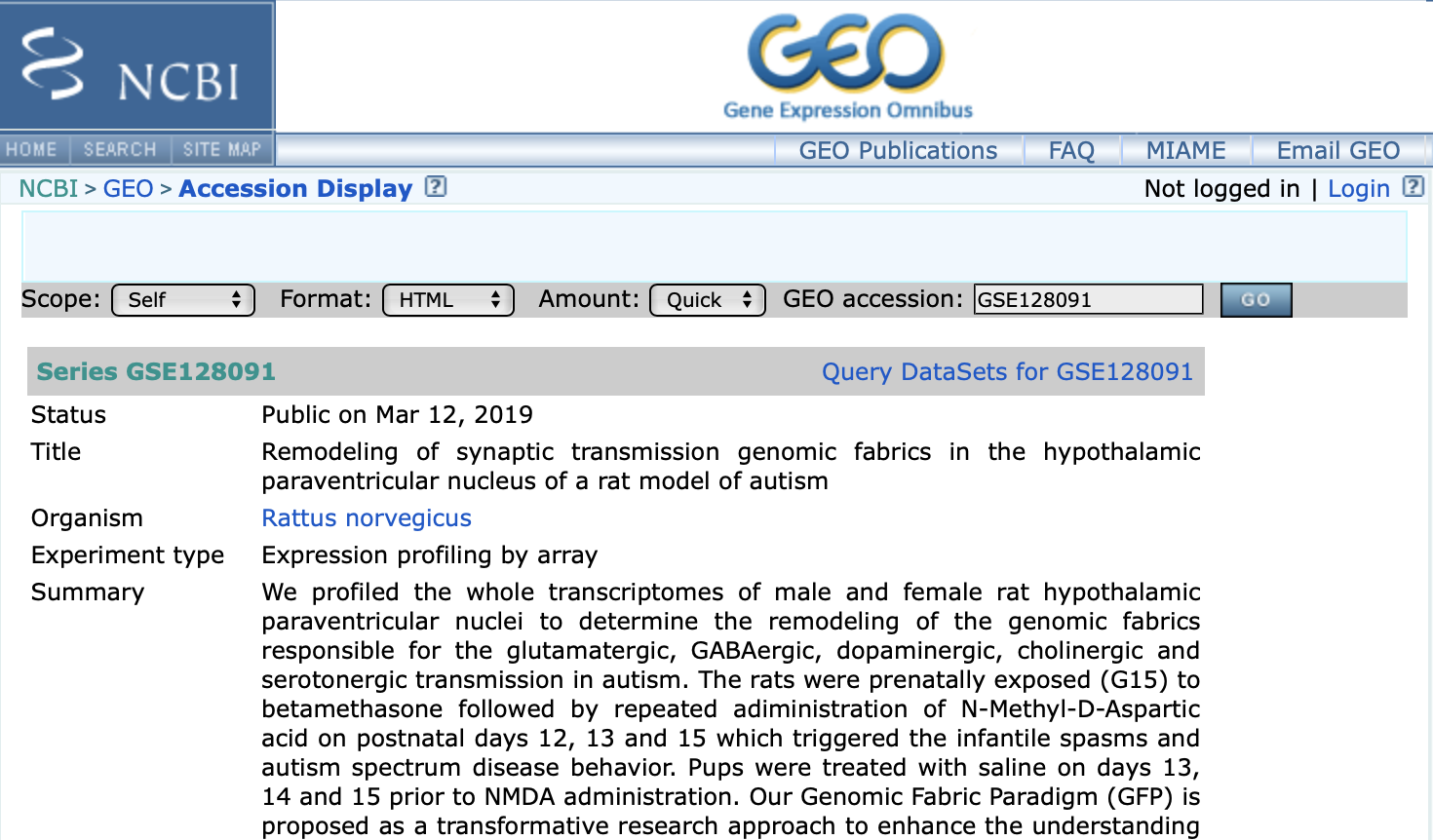
Remodeling of synaptic transmission genomic fabrics in the hypothalamic paraventricular nucleus of a rat model of autism
We profiled the whole transcriptomes of male and female rat hypothalamic paraventricular nuclei to determine the remodeling of the genomic fabrics responsible for the glutamatergic, GABAergic, dopaminergic, cholinergic and serotonergic transmission in autism.
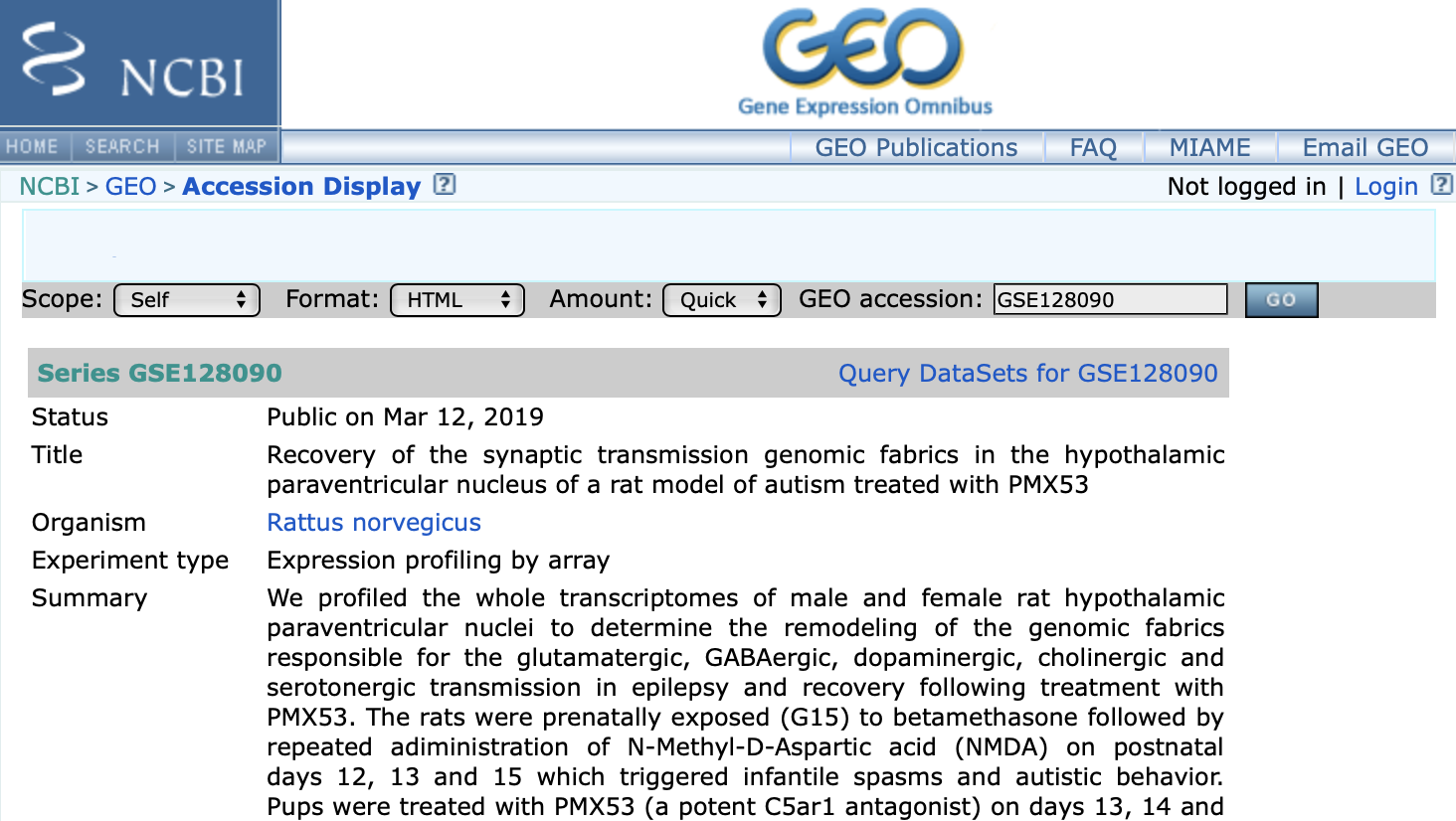
Recovery of the synaptic transmission genomic fabrics in the hypothalamic paraventricular nucleus of a rat model of autism treated with PMX53
We profiled the whole transcriptomes of male and female rat hypothalamic paraventricular nuclei to determine the remodeling of the genomic fabrics responsible for the glutamatergic, GABAergic, dopaminergic, cholinergic and serotonergic transmission in epilepsy and recovery following treatment with PMX53.
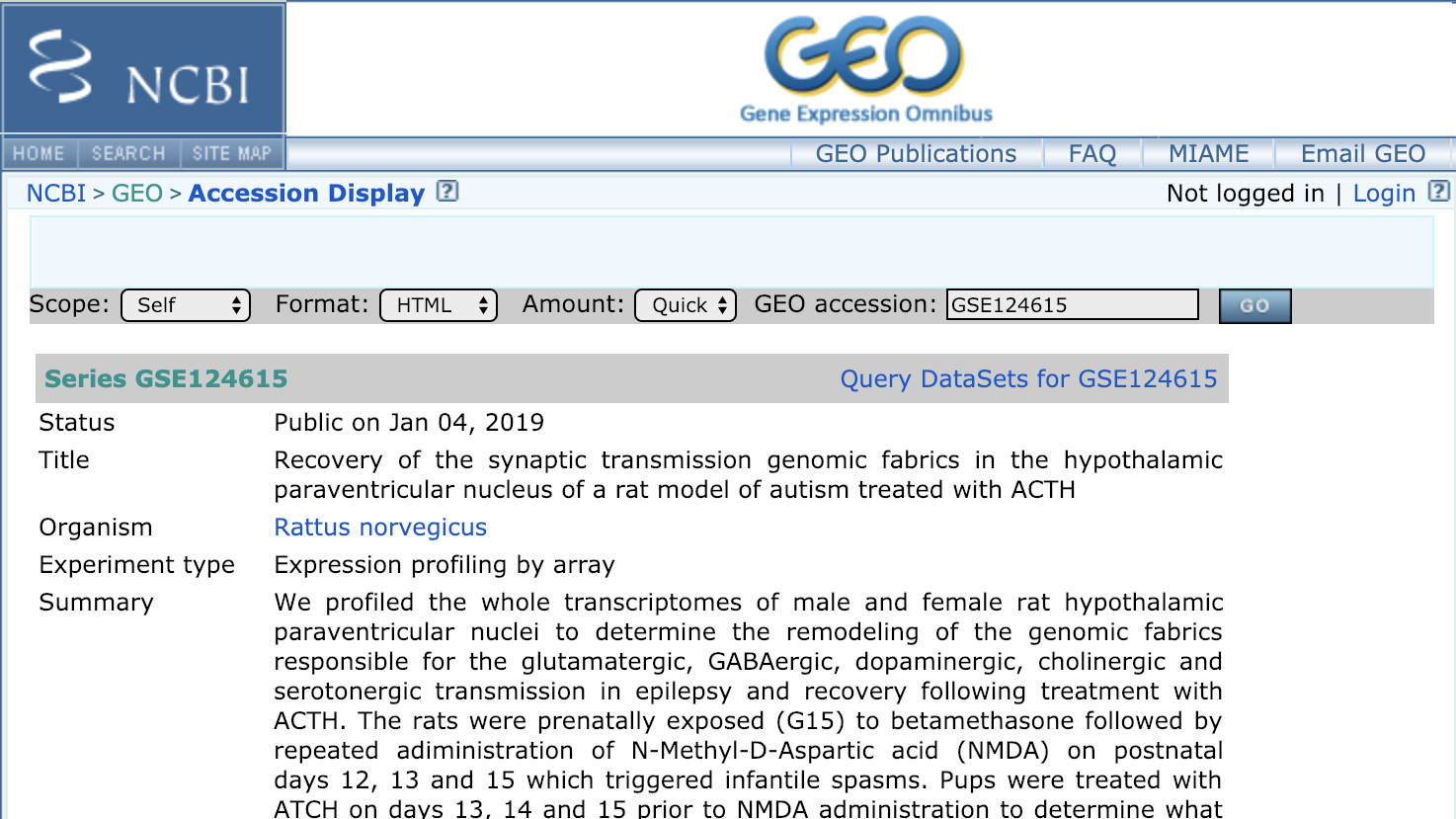
Recovery of the synaptic transmission genomic fabrics in the hypothalamic paraventricular nucleus of a rat model of autism treated with ACTH
We profiled the whole transcriptomes of male and female rat hypothalamic paraventricular nuclei to determine the remodeling of the genomic fabrics responsible for the glutamatergic, GABAergic, dopaminergic, cholinergic and serotonergic transmission in epilepsy and recovery following treatment with ACTH.
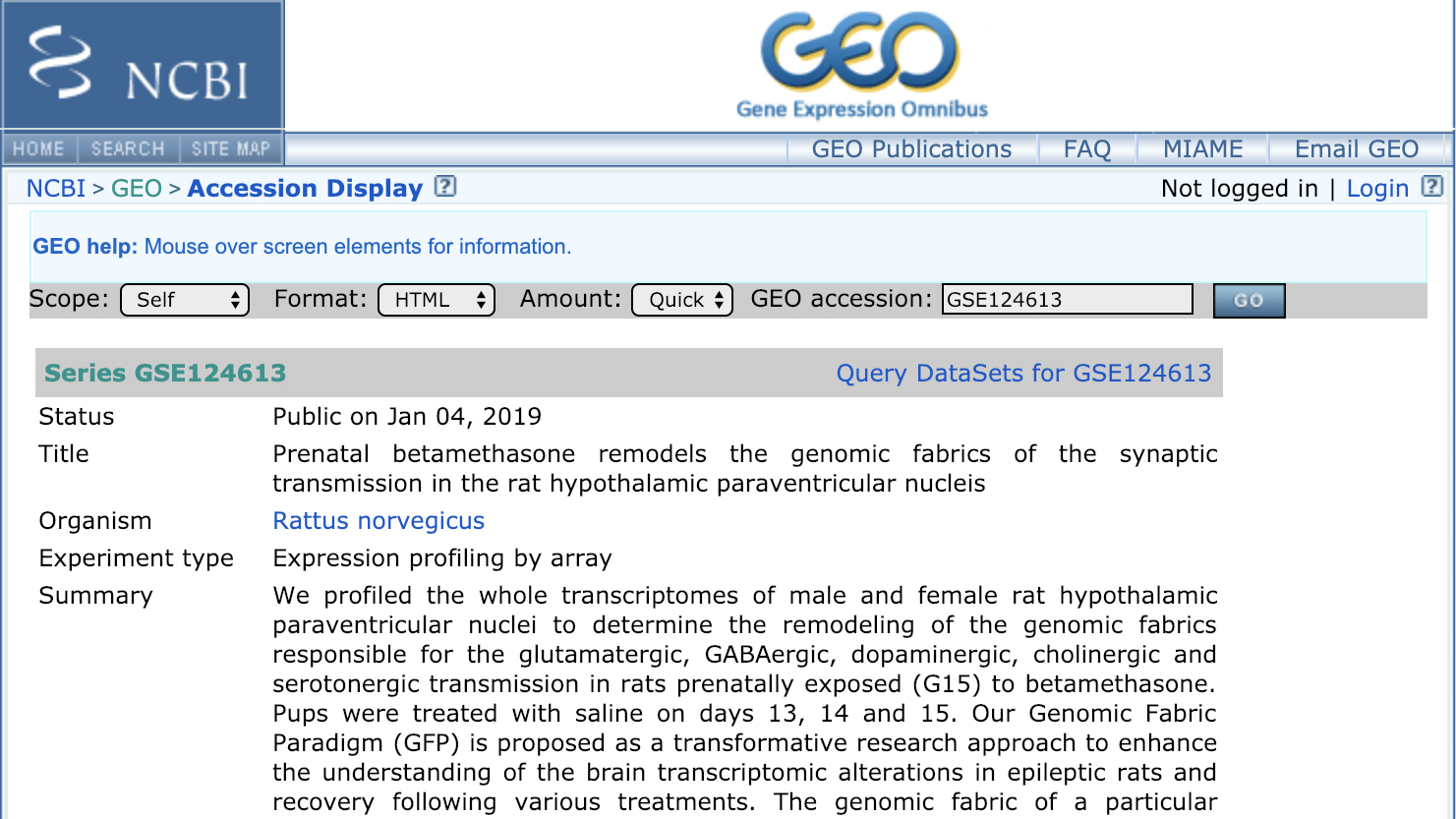
Prenatal betamethasone remodels the genomic fabrics of the synaptic transmission in the rat hypothalamic paraventricular nucleis
We profiled the whole transcriptomes of male and female rat hypothalamic paraventricular nuclei to determine the remodeling of the genomic fabrics responsible for the glutamatergic, GABAergic, dopaminergic, cholinergic and serotonergic transmission in rats prenatally exposed (G15) to betamethasone.
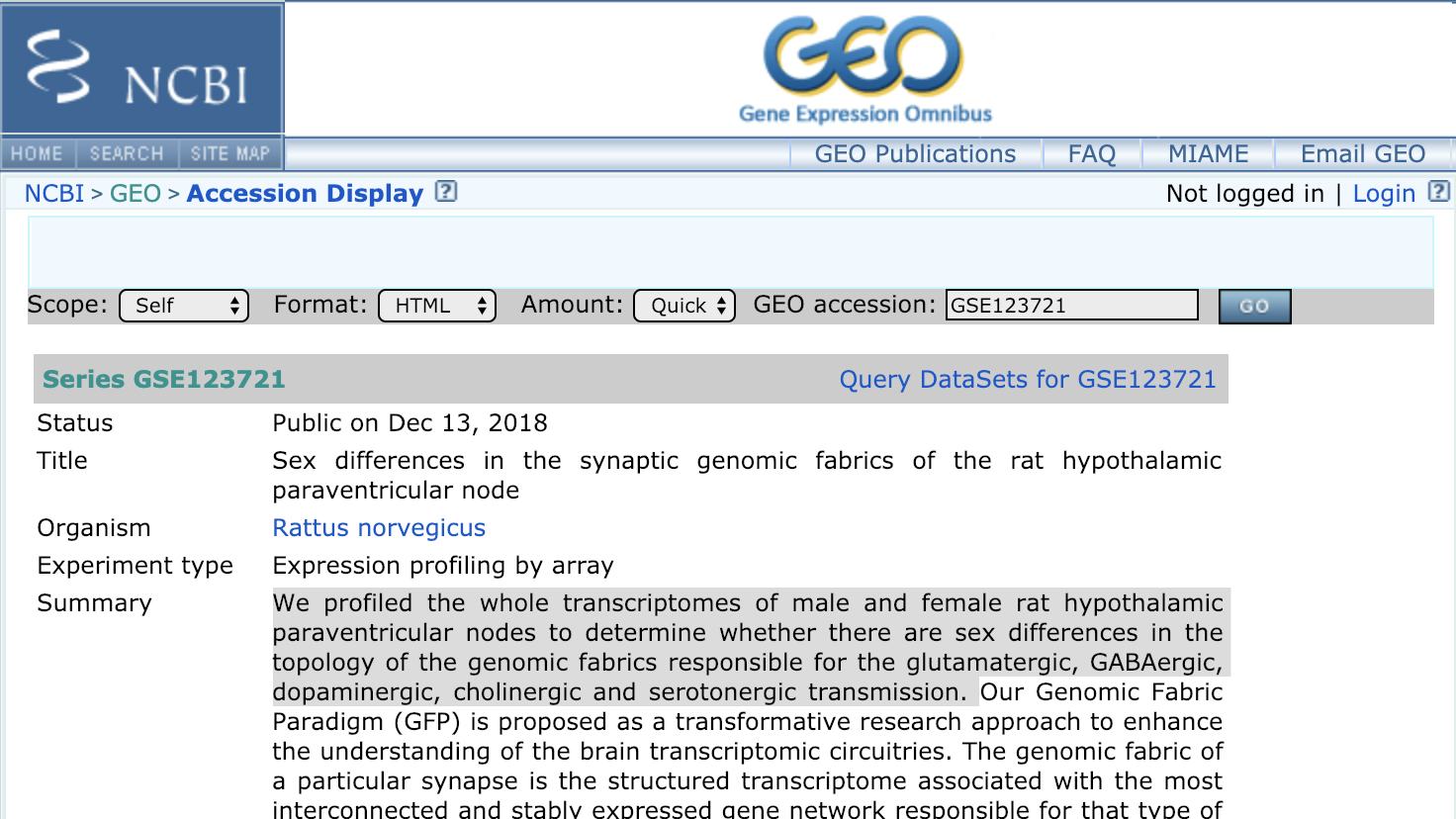
Sex differences in the synaptic genomic fabrics of the rat hypothalamic paraventricular node
We profiled the whole transcriptomes of male and female rat hypothalamic paraventricular nodes to determine whether there are sex differences in the topology of the genomic fabrics responsible for the glutamatergic, GABAergic, dopaminergic, cholinergic and serotonergic transmission.
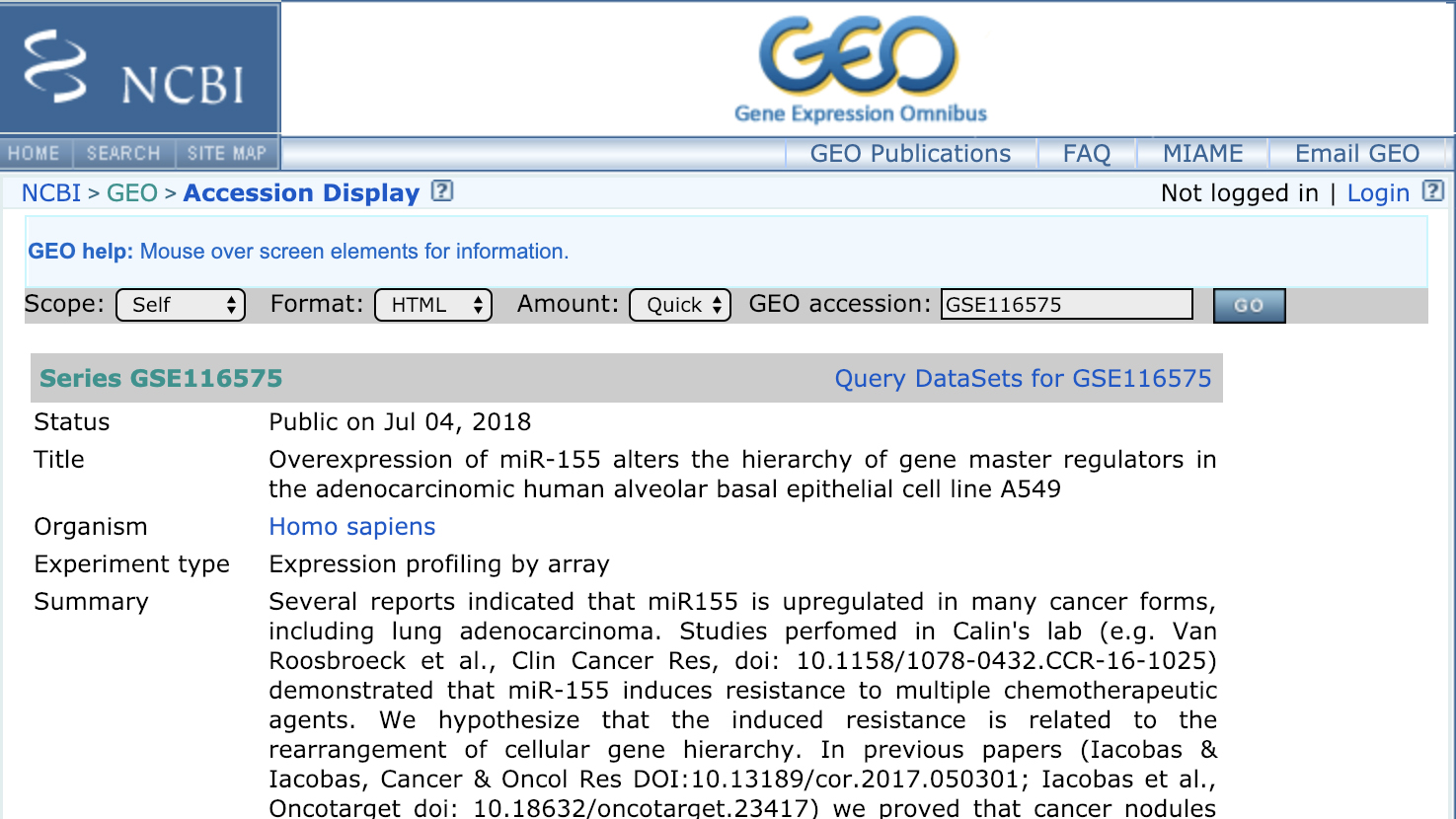
Overexpression of miR-155 alters the hierarchy of gene master regulators in the adenocarcinomic human alveolar basal epithelial cell line A549
Several reports indicated that miR155 is upregulated in many cancer forms, including lung adenocarcinoma. Studies perfomed in Calin's lab (e.g. Van Roosbroeck et al., Clin Cancer Res, doi: 10.1158/1078-0432.CCR-16-1025) demonstrated that miR-155 induces resistance to multiple chemotherapeutic agents. We hypothesize that the induced resistance is related to the rearrangement of cellular gene hierarchy.
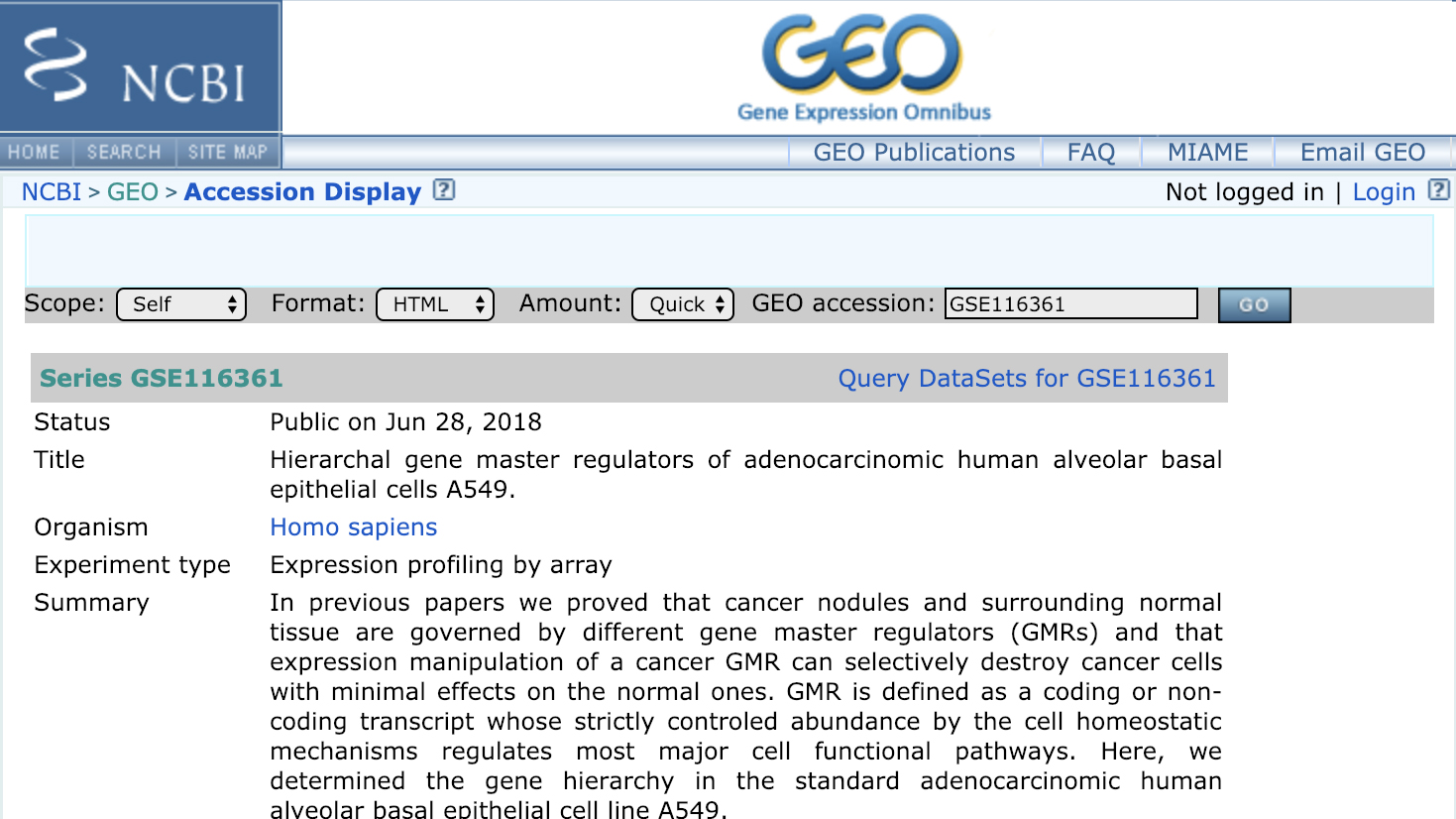
Hierarchal gene master regulators of adenocarcinomic human alveolar basal epithelial cells A549.
Here, we determined the gene hierarchy in the standard adenocarcinomic human alveolar basal epithelial cell line A549.
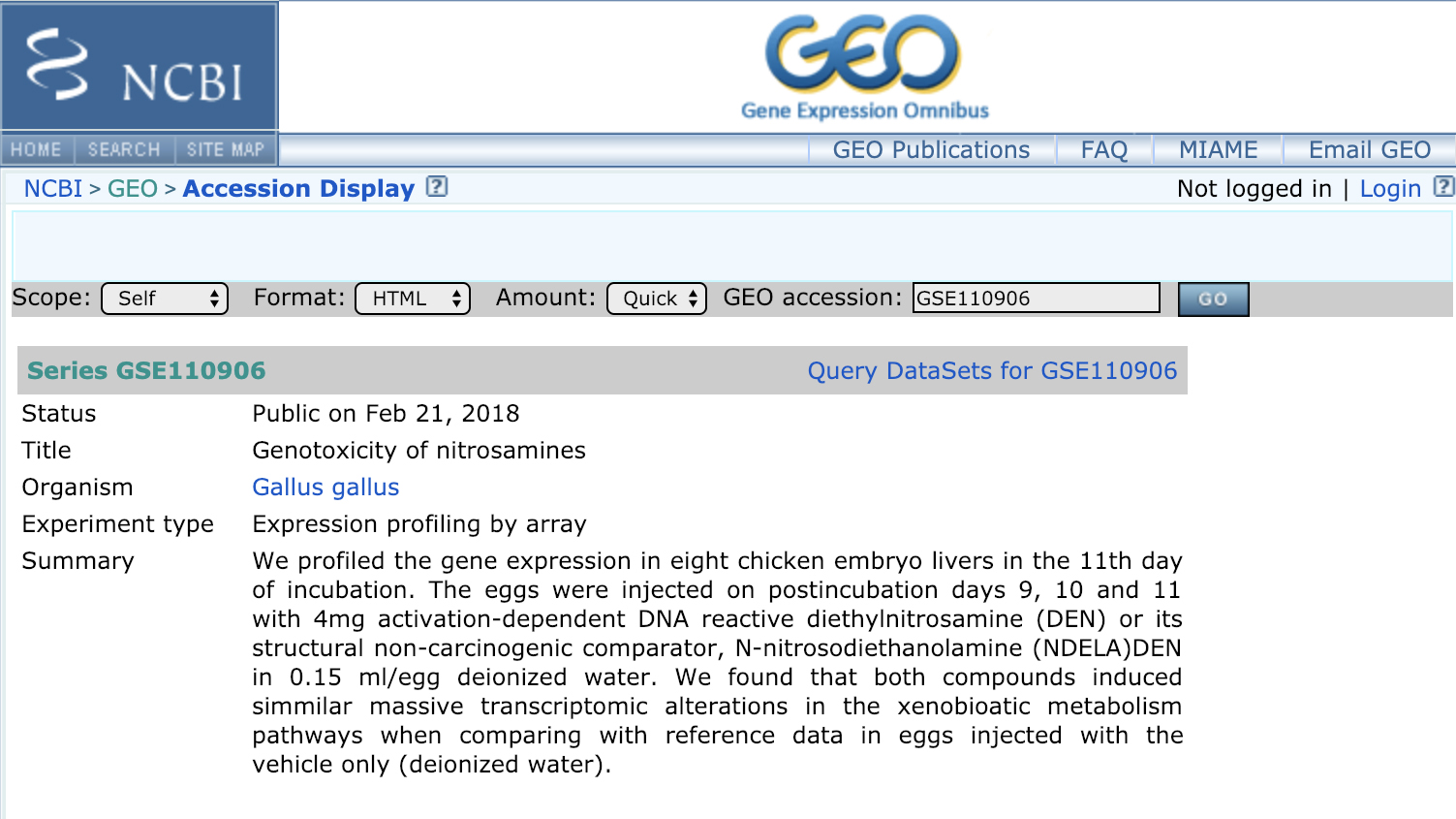
Genotoxicity of nitrosamines
We profiled the gene expression in eight chicken embryo livers in the 11th day of incubation. The eggs were injected on postincubation days 9, 10 and 11 with 4mg activation-dependent DNA reactive diethylnitrosamine (DEN) or its structural non-carcinogenic comparator, N-nitrosodiethanolamine (NDELA)DEN in 0.15 ml/egg deionized water.
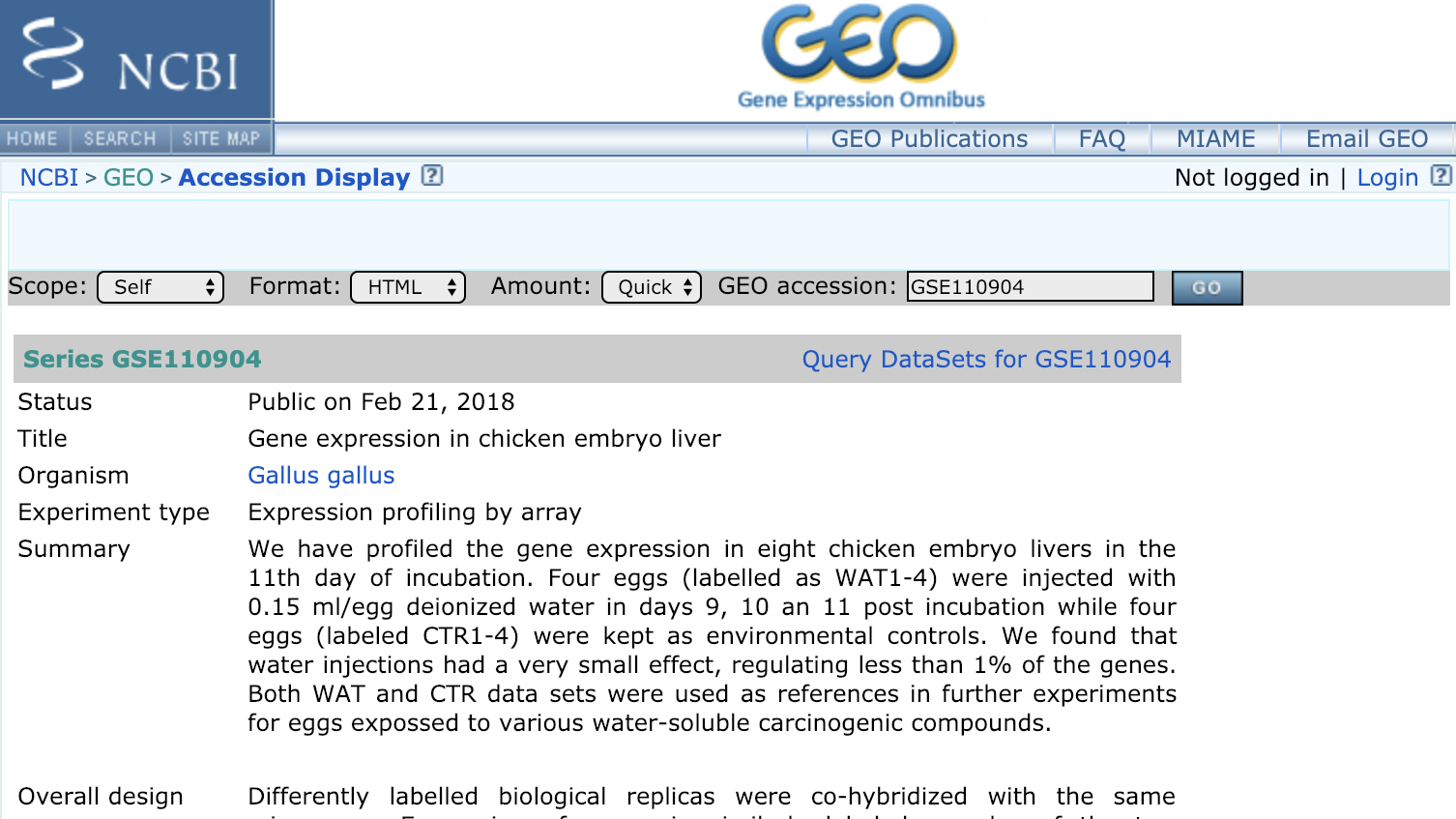
Gene expression in chicken embryo liver
We have profiled the gene expression in eight chicken embryo livers in the 11th day of incubation. Four eggs (labelled as WAT1-4) were injected with 0.15 ml/egg deionized water in days 9, 10 an 11 post incubation while four eggs (labeled CTR1-4) were kept as environmental controls. We found that water injections had a very small effect, regulating less than 1% of the genes.
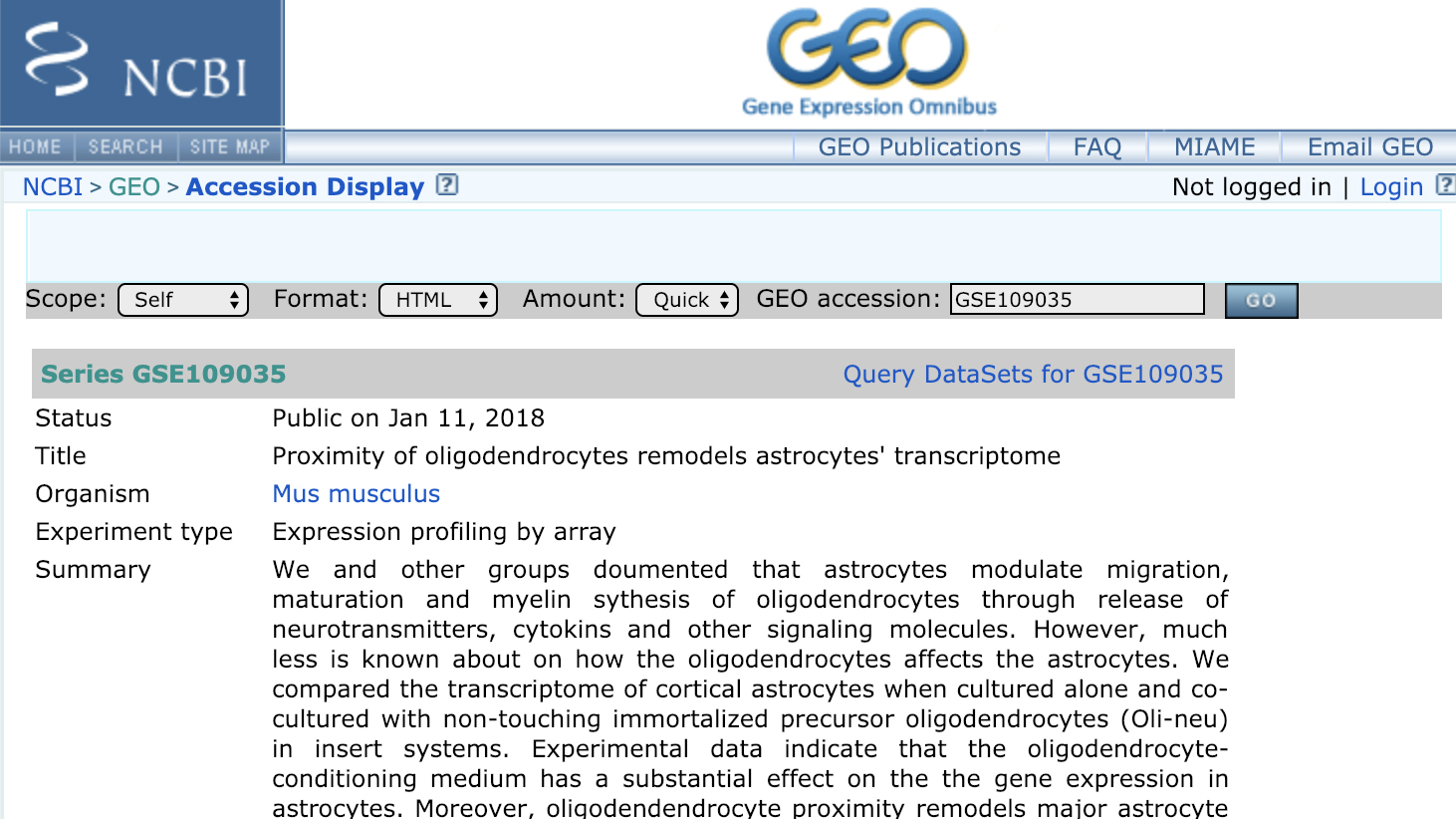
Proximity of oligodendrocytes remodels astrocytes' transcriptome Organism Mus musculus
We and other groups doumented that astrocytes modulate migration, maturation and myelin sythesis of oligodendrocytes through release of neurotransmitters, cytokins and other signaling molecules. However, much less is known about on how the oligodendrocytes affects the astrocytes. We compared the transcriptome of cortical astrocytes when cultured alone and co-cultured with non-touching immortalized precursor oligodendrocytes (Oli-neu) in insert systems.
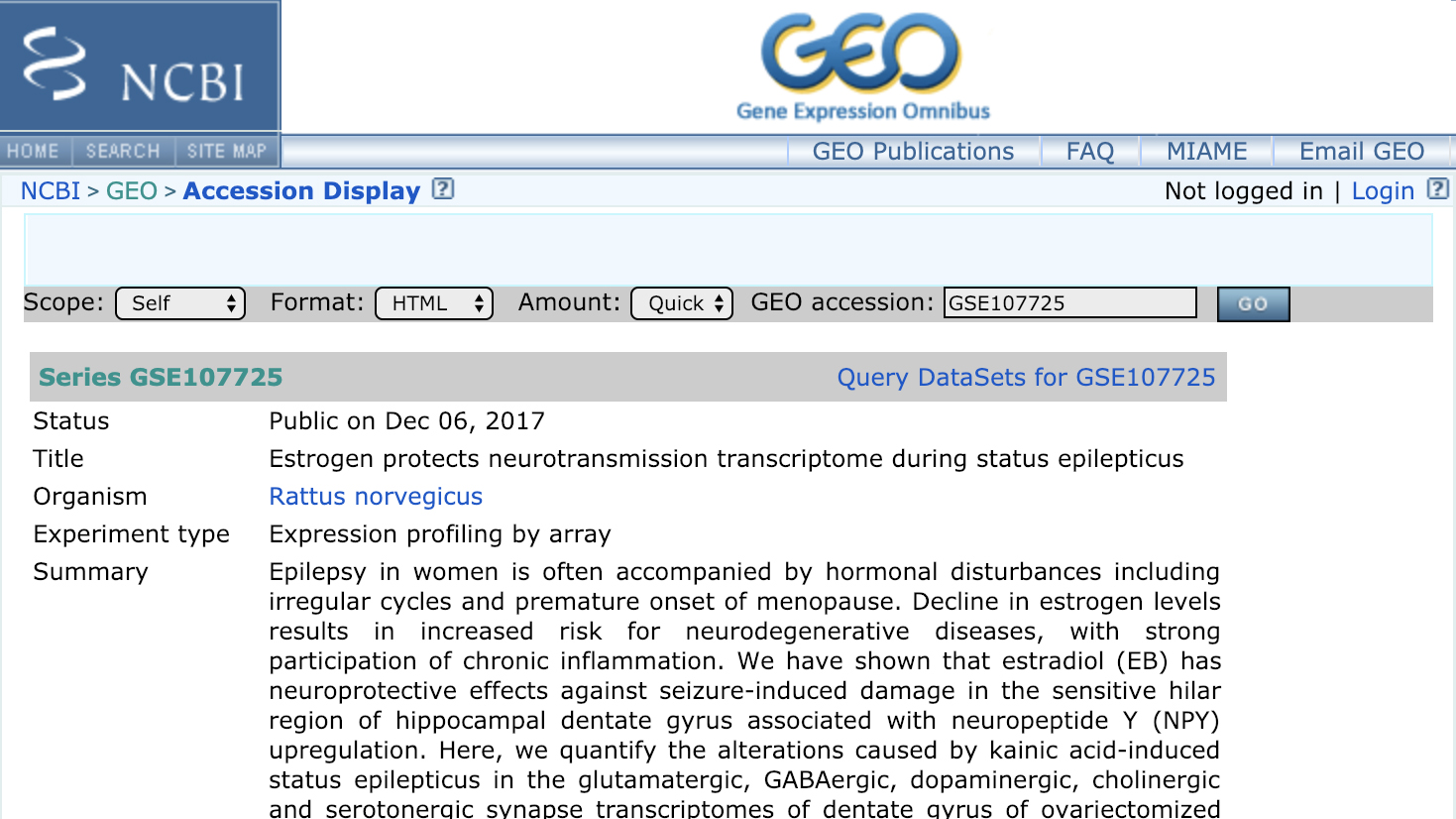
Estrogen protects neurotransmission transcriptome during status epilepticus
Epilepsy in women is often accompanied by hormonal disturbances including irregular cycles and premature onset of menopause. Decline in estrogen levels results in increased risk for neurodegenerative diseases, with strong participation of chronic inflammation. We have shown that estradiol (EB) has neuroprotective effects against seizure-induced damage in the sensitive hilar region of hippocampal dentate gyrus associated with neuropeptide Y (NPY) upregulation.